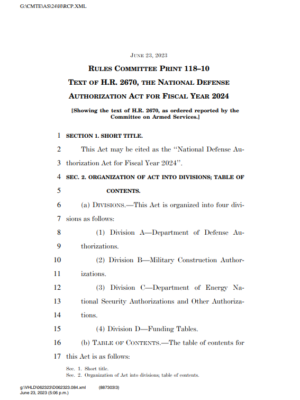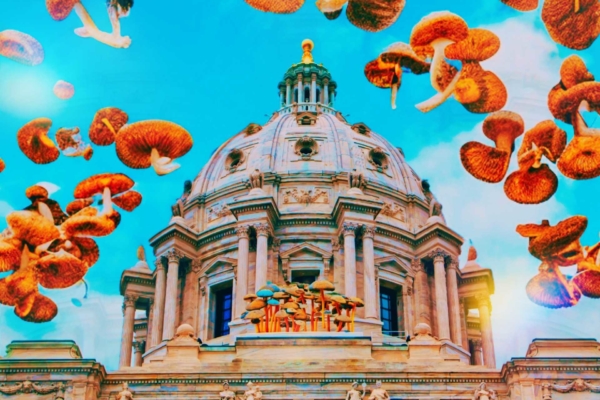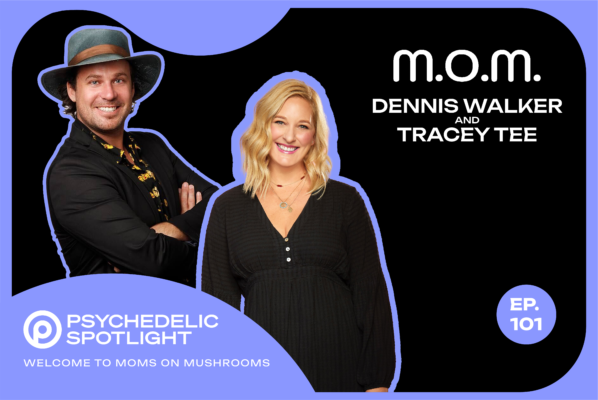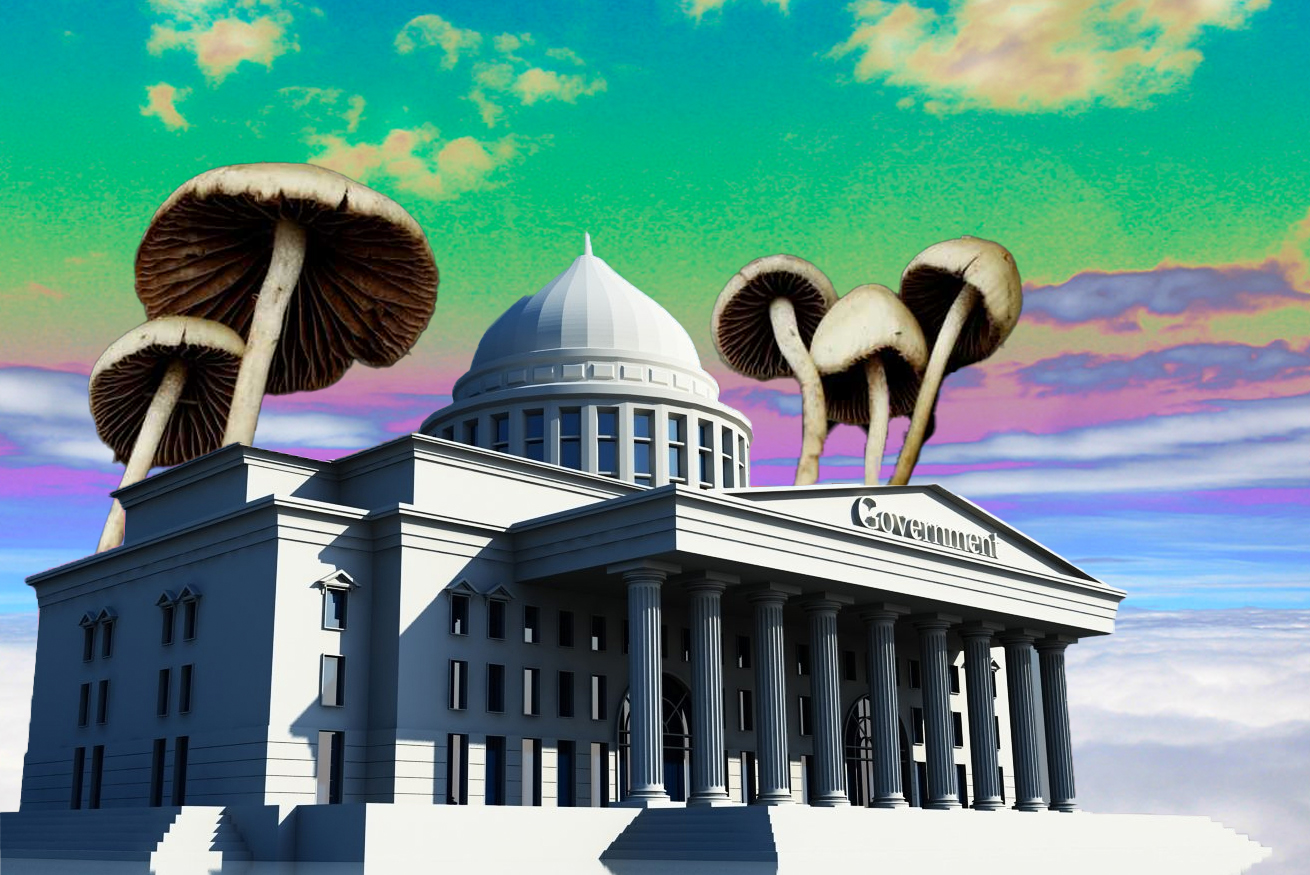
There have been some exciting developments in the psychedelic world, continuing the trend from weeks prior. The biggest story is that Australia became the first Westernized country to allow physicians to prescribe MDMA and psilocybin in specific cases.
A new study demonstrating the benefits of psilocybin in daily life has been released, this time linking higher feelings of authenticity with regular microdosing.
According to reports, Congressman Matt Gaetz has attributed the current regressive drug policies to the senior members of Congress. Meanwhile, members of both political parties are collaborating to modify a defense bill, allowing for the rescheduling of psychedelics and providing active-duty service members access to psychedelic therapy.
Bipartisan lawmakers are attempting to amend DOD bill to expand access to marijuana and psychedelics
Committee on Armed Services.]
Moreover, a proposal has been put forward by a group of lawmakers from both parties suggesting that the DEA be granted the power to move psilocybin, MDMA, and other psychedelic drugs that have previously obtained ‘breakthrough therapy’ status out of Schedule 1 under the Controlled Substances Act and into Schedule 2.
The proposed amendments demonstrate that both sides of the political spectrum recognize the significance of permitted use of psychedelics in a clinical environment. To address America’s mental health and substance addiction issues, fresh and inventive solutions are required as the existing ones are insufficient.
Australia has legalized regulated access to MDMA and psilocybin to treat PTSD and TRD
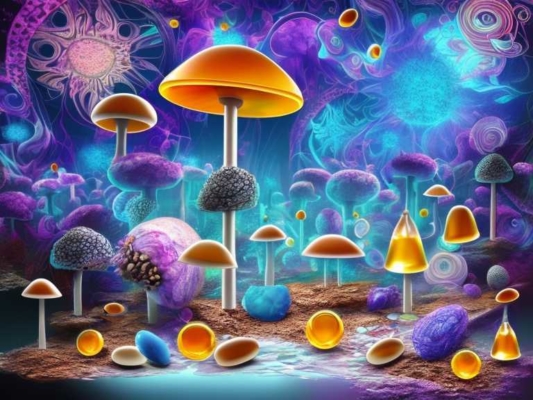
As of July 1st, 2023, Australia became the first Western country to permit doctors to prescribe MDMA for individuals dealing with post-traumatic stress disorder and psilocybin for individuals with depression that is resistant to treatment.
The advancement was possible due to the reclassification of both substances from Schedule 9 of the Poisons Standard to Schedule 8. This reclassification enables their controlled usage under specific circumstances.
Psychiatrists who wish to incorporate MDMA or psilocybin into their patients’ treatment must first request authorization, as both substances are still illegal outside of medical contexts. Currently, Australian authorities do not believe there is enough evidence to support the use of psilocybin and MDMA over other treatments for various conditions. However, ongoing research on the efficacy of psychedelics to treat different disorders may alter their position in the near future.
Although the law is restrictive, it still marks a significant win for the psychedelic community. This could potentially encourage lawmakers globally to view these substances as helpful tools to combat mental health issues. There is optimism that the FDA will also take similar steps, as evidenced by the recent publication of guidelines for psychedelic clinical trials. Despite being a modest move, it signals progress towards that goal.
Read also: Australia Becomes the First Country to Prescribe Psychedelics to Treat Depression and PTSD
Matt Gaetz blames older congress members for supporting regressive psychedelics legislation; Alexandra Ocasio-Cortez thinks President Joe Biden is to blame

Republican Rep. Matt Gaetz spoke to the Washington Post and blamed Congress’ “gerontocracy” for rejecting several pieces of legislation related to psychedelics in recent years.
He praised both Rep. Alexandra Ocasio-Cortez and Rep. Dan Crenshaw for their leadership in the effort to legalize psychedelics. He highlighted their youth as an advantage, as they are more receptive to these matters.
The median Congress member is 61.7 years old, and 107 members are over 70 years old. This poses a challenge for drug-related legislation, as older lawmakers may be more strongly influenced by the War on Drugs era and dismissive of the potential benefits of substances that have been misclassified.
Ocasio-Cortez is concerned beyond Congress about the possibility that President Joe Biden might hinder the passing of pro-psychedelics laws. Her apprehension originates from Biden’s unfavorable position towards marijuana, indicating that he may be less inclined to legalize other substances.
On the other hand, Frank Biden, Joe Biden’s brother, recently stated that the president is open-minded regarding psychedelics, and he’s aware of how they have helped members of his family with a history of substance abuse.
Congress members have been more open to discussing psychedelics and passing related amendments ever since Democrat Ocasio-Cortez and Republican Crenshaw have partnered, and bipartisan support may be the key to broadening the rights of people who use psychedelics.
Study shows how microdosing can make people feel closer to their “authentic selves.”
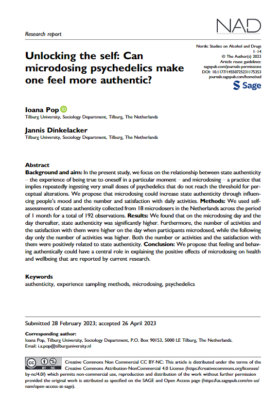
A recent study published in Nordic Studies on Alcohol and Drugs Online offers insight into how microdosing—ingesting tiny doses of psychedelics that do not trigger hallucinations—can help people express themselves more authentically.
The study’s authors define state authenticity as the feeling of being true to oneself at a specific moment. They propose that microdosing might enhance users’ mood and overall enjoyment of daily tasks, leading to a sense of authenticity.
To gather this information, the researchers made 18 participants in the Netherlands report their level of state authenticity for a month, finding that they felt closer to their true selves on days when they microdosed compared to days when they didn’t. Additionally, microdosing psychedelics led to improved participation in daily activities and increased enjoyment during those activities among the participants.
Despite its small scope, this study shows that microdoses have a net positive effect on participants, not only by making them feel more authentic but also by making daily life more engaging and rewarding.
Read also: New Study Reveals Microdosing Could Make You Feel More Authentic
